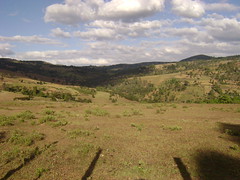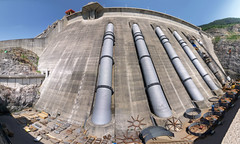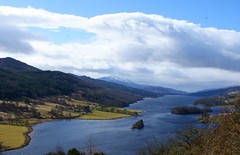Posts tagged public sector
Enquiry–Market Failure and Possible Solutions in Real Life Issues
Jan 8th
This activity is designed to address the following syllabus point from the Cambridge IGCSE Syllabus (0455) for Economics:
define private and social costs1 and benefits and discuss conflicts of interest in relation to these costs
and benefits in the short term and long term through studies of the following issues:
• conserving resources versus using resources;
• public expenditure versus private expenditure.1 Social costs are equal to the sum of private costs and external costs.
It is suggested that these enquiries are conducted in groups.
Research and prepare a presentation or written summary on one of the following issues for the your country which you are studying in. Suggestions on what to include on your presentation / summary are at the bottom of this post.
Type A – Public versus Private Provision of Key ‘Services’
Transport – should there be more public or private transport in your chosen country?

Image: Some rights reserved by Jeff Attaway
The Provision of Health Care – should there be more public or private provision?

Image: Some rights reserved by Fotos Gov/Ba
The Provision of Education – should there be more public or private provision?

Image: Some rights reserved by Artshooter
Type B – Use of versus Conservation of Key ‘Resources’
Using Wood from Forests as a Raw Material

Image: Some rights reserved by afromusing
Using Rivers to Generate Hydro Electricity

Image: Some rights reserved by Kam’s World
The Use of Fossil Fuel Power Stations

Image: Some rights reserved by Tim Ebbs
The Use of ‘Beauty Spots’ (such as beaches) for Tourism

Image: Some rights reserved by sarniebill1
Suggestions of what you could include in your presentation / summary:
1) What are the private costs and benefits involved?
2) What are the external costs and benefits involved?
3) If Type A Issue – Government versus Private. How has the government been involved? How has the private sector been involved? Should this change and, if so, why?
If Type B Issue – Conservation versus Usage. What are the resources used for, how much are they used, are they conserved? Should they be used more or conserved more?
4) What conflicts of interests are there in this issue? What different groups are involved and how are they affected differently? Why might they have different views on using these resources / providing these services?
5) Discuss how this issue might differ between the short term and the long term. For example, what are the short term effects of using these resources / providing this service? What are the long term effects? Are there short term solutions and are there long term solutions?
Bonus points awarded for:
- Use of and accurate definitions of relevant key words/phrases.
- Real life evidence – statistics, places, dates, etc.
- Diagrams with explanations.
Suggested format:
Either
a) A slideshow that you can explain briefly to the rest of your class.
b) An email to someone, such as your teacher, but imagining that they are an influential person in the government and that you are writing to advise them on this issue as an Economic advisor.


